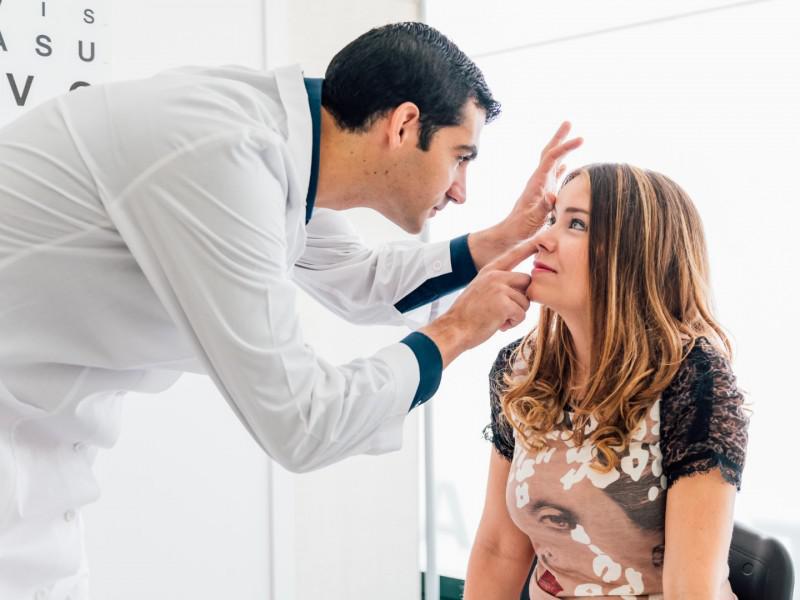
Weigh the pros and cons of wearing glasses and contacts before deciding between the two. Our knowledgeable optometrists Mital Patel, OD, Mark Machen, OD, and Ashley Swalla, OD at Classic Vision Care in Kennesaw and Marietta, Georgia, help you see more clearly whether you should choose glasses, contacts or a combination of both.
Pros and cons of eyeglasses
In some cases, glasses may be your best option. They require minimal upkeep, whereas contact lenses usually need daily care. In addition, glasses:
- Won’t irritate your eyes
- Shield your eyes from germs and debris
- Protect you from dust and pollen in the air
- Correct vision
- Create a stylish look
- Need less upkeep than contact lenses
They do, however, pose several drawbacks, and may:
- Cause a slight distortion in your peripheral vision
- Need a period of adjustment
- Fog up when wearing a mask or under certain weather conditions
- Feel uncomfortable when worn for long periods of time
Eyeglasses, however, rarely present a problem for wearers suffering from sensitive eyes.
Understanding astigmatism
Astigmatism occurs when your cornea is more elongated than round, causing blurry vision. We correct this through either glasses or contact lenses. In mild cases, soft contacts may help. With more extensive astigmatism, rigid toric lenses may be your best solution. Fitting you properly is crucial with either soft or rigid toric lenses, which must remain in a specific position on your eye.
Once our optometrists diagnose your astigmatism, they’ll help you decide between glasses or contacts. Glasses with special lenses counteract astigmatism, offering the easiest resolution. However, your side vision may appear distorted at first, and might take a week or so to appear normal.
Diagnosing astigmatism
We uncover astigmatism through various exams, using such instruments as:
- Keratometer. This determines the bend of your cornea.
- Phoropter. Various lenses measure your vision.
- Autorefractor. We shine a light into your eyes to see the angle it bounces off.
- Corneal topographer. This maps your cornea by collecting thousands of measurements.
These help determine the extent of your astigmatism, so we can decide the best option, glasses or contact lenses.
Plus and minuses of contacts
Contacts may be the superior option to glasses, since they:
- Conform better to your eye curvature
- Offer a wider field of vision
- Present less visual distortion and obstruction
- Make playing sports and working out easier
- Won’t fog up
Some contact lenses even reshape your cornea while you sleep, so you can see more clearly the following day.
Dry eyes and contact lenses
One of the biggest disadvantages of contact lenses may be dry eyes, which tend to be even more prevalent as we age. According to the American Optometric Association, dry eyes develop for a variety of reasons, from aging and medical conditions, such as diabetes and thyroid issues, to medications and environmental factors, including smoke and climate. Wearing contacts over time may also lead to dry eyes. If you’re experiencing dryness, speak to Dr. Patel and our team about whether wearing glasses instead of contacts might help.
The best solution
Fortunately, we’ve come a long way since people purchased their eyeglasses from vendors through trial and error without any sort of exam. Our expert optometrists perform a thorough eye exam to ensure you choose the best eyewear for your needs. If you’d like to get fitted for glasses, contacts, or both, or simply want to schedule your routine eye exam, contact our knowledgeable team at Classic Vision Care. Call us or book an appointment online today.
You Might Also Enjoy…
Is Squinting Bad for Your Eyes?If you find yourself squinting throughout the day in order to see better, it may be a sign you need glasses. Is continuous squinting bad for your eyes? See how you can correct your vision without squinting.
5 Common Signs of Dry EyesMillions of people suffer from dry eyes in the United States alone. Discover five common symptoms and how to prevent and treat this uncomfortable condition to avoid further complications.
Why Sunglasses are Important All Year LongNo doubt you always have your favorite shades close by all summer. But sunglasses protect your eyes all year long, even during darker winter months. Learn how they shield your eyes from harmful ultraviolet (UV) rays any time of year.
How Astigmatism Affects Your VisionAstigmatism causes a variety of symptoms ranging from blurred vision to eye discomfort and pressure. Understand how a comprehensive eye exam can pinpoint the cause of your symptoms and get your sight back on track.
Who Is at Risk for Glaucoma?Could you be at risk for glaucoma? The short answer is that everyone, especially seniors, is at risk for glaucoma. Learn how to lessen your odds of losing your sight through early detection and treatment.
5 Steps to Prevent Diabetic Eye Disease People with diabetes are more vulnerable to certain eye diseases, such as glaucoma, cataracts, and diabetic retinopathy. Learn what steps you can take to slow their progression and potentially avoid them in the first place.






